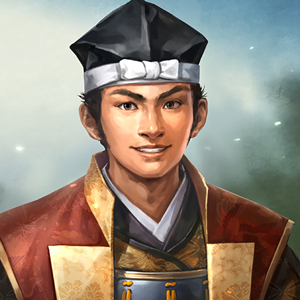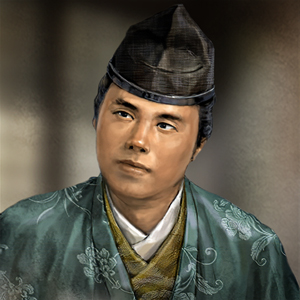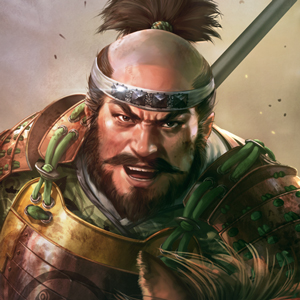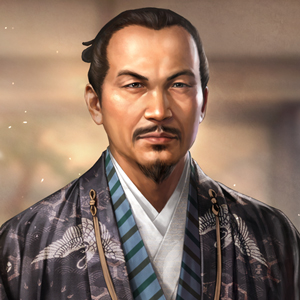Game Outline
Game Objective Country / County / Castle Officer Abbreviations
Game Objective
The player commands a clan as its daimyō.
Daimyō bring prosperity to their countries by assigning domains to their retainers and expanding their clans' influence through cooperation or war with other clans.
Fulfilling any of the following conditions will end the game.
Finishing the Game
| Regional Unity | Control all the castles within the region that was affiliated with your main base at the beginning of the scenario. The game can be continued after viewing this ending. |
|---|---|
| Three Offered Positions | Control over half of the castles in the entire nation. Control all the castles within the capital region (Yamashiro, Yamato, Kawachi, Izumi, and Settsu). |
| Nationwide Unity | Control all the castles in Japan. |
| Nationwide Dominance | Control over half of the castles in the entire nation, and make all other daimyō houses your vassals. |
*There are nine regions in total.
Tōhoku, Kantō, Hokuriku, Kōshin, Tōkai, Kinki, Chūgoku, Shikoku, Kyūshū
*The Regional Unity ending will not trigger if you begin a scenario with a clan that already controls an abundance of castles.
*The Three Offered Positions ending will not trigger if you begin a scenario having already been appointed the position of shōgun, chief advisor, or grand minister.
Game Over
- Losing all of your castles
- Letting the daimyō die when there are no kin officers
- Reaching the year 1700
Country / County / Castle
Japan is divided into 72 countries, each containing a number of counties.
Controlling counties will earn you gold and supplies each month.
Officers will focus their activities on counties that have castles.
As the leader of their castle, a lord will work together with the land holders to add town facilities, march units, and perform various other tasks.
Developing counties and adding castle facilities are some ways to stabilize your income and strengthen your units.
Direct Control Land
The castle where the daimyō stays is called the main base. The counties of the main base are under the daimyō's direct control.
Substitutes can be assigned to govern directly controlled land.
Dominion
Counties outside of this directly controlled land can be parceled out to officers as dominion.
When an officer becomes a land holder, they will work to develop their county.
When an officer is given a county in which a castle is located, they become a lord and gain control over all the affiliated counties (dominion). The abilities of the lord and land holders determine the speed at which counties are developed and the strength of their unit.
Supplies and soldier count will be managed by each castle. When marching, the various land holders of a dominion will march together as one unit. However, when fortifying against a siege, the land holders will march in separate units.
Direct Control Land and Dominion
- Domains under a Castle (Dominion)
- County
- Daimyō

- Substitute

- Substitute

- Lord

- Land
Holder
- Land
Holder
Officer
To strengthen their military and increase the wealth of their countries, daimyō either command directly or assign domains to their officers.
Officers will rise in station and further develop by gaining honor and exp from the activities they perform.
Station
Once an officer has gained a certain amount of honor, their station will rise automatically during the honor commendation that occurs once every three months.
Honor is acquired in proportion to the number of activities performed.
As an officer's station rises, they will become capable of governing counties and castles.
| Chief | Can be appointed as a substitute. |
|---|---|
| Infantry Leader | Can be appointed as a substitute or land holder. |
| Samurai Leader | Can be appointed as a substitute, land holder, or lord. |
| Captain | Can be appointed as a substitute, land holder, or lord. Can be assigned to issue policies or mediate. Can be appointed as an overseer. Lord's dominion (the number of counties assignable to a lord) increases slightly. |
| Senior Retainer | Can be appointed as a substitute, land holder, lord, or regent. Can be assigned to issue policies or mediate. Can be appointed as an overseer or conservator. Lord's dominion increases moderately. |
| Senior Officer | Can be appointed as a substitute, land holder, lord, or regent. Can be assigned to issue policies or mediate. Can be appointed as an overseer or conservator. Lord's dominion increases greatly. |
Employment
Appointing an officer changes their employment.
If an officer is assigned an employment beneath their station (for instance, appointing a senior retainer as a substitute), their loyalty will decrease.
| Attendant | Has no appointment and is on standby at the main base. |
|---|---|
| Substitute | A substitute in the directly controlled land. Although they directly support the daimyō, it is a low position. |
| Land Holder | Supports the lord. |
| Lord | Leads land holders. |
| Regent | An important role that is responsible for governing the lords of a province. |
Other
Loyalty
An officer's loyalty will change depending on their affinity with the daimyō and the activities they perform. It can be increased by giving rewards or official posts.
Low loyalty has the following disadvantages:
- More likely to abscond and leave the clan
- More likely to surrender before the castle falls when their castle is attacked by the enemy
- More likely to retreat of their own volition when under disadvantageous conditions
- Becomes the target of enemy covert actions
Growth
Officers gain exp through activities like performing civil affairs and participating in combat.
Gaining exp will increase an officer's abilities.
Affinity
Officers have affinities for one another. When an officer's affinity with their lord is positive, castle abilities will increase.
If an officer's affinity with their daimyō is negative, their loyalty will decrease.
When capturing an enemy officer, if their affinity is negative toward you as the daimyō, they will be harder to employ.
Injury and Illness
Illness indicates that an officer is approaching the end of their lifespan.
Officers who are injured or have become ill will experience a temporary decrease in their abilities. They will also be more likely to die in battle.
Abbreviations
A list of abbreviations used in the game.
| Leadership | |
| Valor | |
| Intelligence | |
| Politics | |
| LV | Level |
| HP | Hit Point / Durability |
| ATK | Attack |
| DEF | Defense |
| REQ Trust | Required Trust during Negotiations |
| yr. | Year |
| mo. | Month |
| yo. | Years old |
| d. | Days |
| Bldg. | Building |
| Exp. | Explanation |
| Eff. Amount | Effect Amount |
| Vs. Blockade | Versus Blockade |